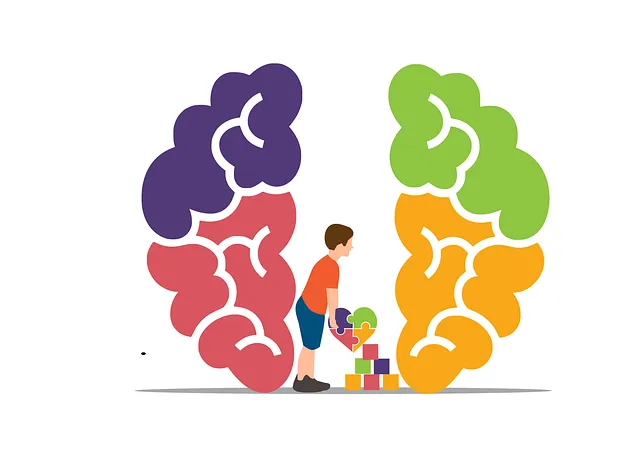Cultural competency at Kaiser Permanente's mental health center in Westminster is a highly effective strategy, praised through positive Kaiser Permanente mental health center reviews Westminster. It goes beyond language translation, incorporating diverse healing practices, family structures, and communication styles to provide tailored care. This holistic approach enhances patient outcomes, builds trust, and improves engagement with treatment plans. Through training, education on self-care routines, and emotional regulation techniques, the center ensures accessible and effective mental health services for a diverse community, significantly contributing to improved patient outcomes and community relationships.
“Cultural competency in healthcare is no longer a nice-to-have, but an imperative. This comprehensive guide explores its profound impact on patient care through a case study of the Kaiser Permanente Mental Health Center in Westminster. We delve into the center’s successful training programs and their positive effects on diverse patient populations.
Furthermore, we provide best practices for healthcare providers looking to implement and evaluate cultural competency initiatives, ensuring improved outcomes and enhanced relationships between providers and patients from various backgrounds.”
- Understanding Cultural Competency in Healthcare: Why It Matters and Its Impact on Patient Care
- Kaiser Permanente Mental Health Center Reviews: A Case Study on Effective Cultural Competency Training
- Implementing and Evaluating Cultural Competency Programs: Best Practices for Healthcare Providers
Understanding Cultural Competency in Healthcare: Why It Matters and Its Impact on Patient Care

In today’s diverse healthcare landscape, cultural competency is more than a buzzword; it’s an essential cornerstone for delivering quality patient care. Cultural competency involves understanding and appreciating the cultural backgrounds, values, and beliefs of patients, especially those from underrepresented or minority communities. At Kaiser Permanente mental health centers like the one in Westminster, this approach goes beyond basic language translation. It encompasses recognizing and respecting diverse healing practices, family dynamics, and communication styles, ensuring every patient receives care tailored to their unique needs.
This holistic view of healthcare has profound implications for patient outcomes. When providers demonstrate cultural sensitivity and use emotional well-being promotion techniques that resonate with patients’ backgrounds, it fosters trust and collaboration in the therapeutic process. Studies show that this can significantly enhance emotional healing processes, leading to better engagement, adherence to treatment plans, and ultimately, improved mental health outcomes. By integrating cultural competency training into their practices, healthcare providers not only improve patient satisfaction but also contribute to more inclusive and effective mental healthcare services.
Kaiser Permanente Mental Health Center Reviews: A Case Study on Effective Cultural Competency Training

The Kaiser Permanente Mental Health Center in Westminster has garnered praise for its comprehensive cultural competency training programs, as evidenced by numerous positive reviews. These initiatives are designed to equip healthcare providers with the skills necessary to offer sensitive and effective care to a diverse range of patients. By prioritizing cultural awareness, the center ensures that mental health services are accessible and tailored to meet the unique needs of every individual.
One key aspect of their training involves educating staff on the importance of self-care routines for better mental health. This enables professionals to manage stress effectively, which is essential in high-pressure healthcare environments. The Stress Management Workshops Organization, a recognized leader in this field, has contributed significantly to this program. Additionally, emotional regulation techniques are integrated into the curriculum, empowering providers to support patients in navigating their feelings and fostering healthier lifestyles. These holistic approaches have led to improved patient outcomes and stronger relationships within the community.
Implementing and Evaluating Cultural Competency Programs: Best Practices for Healthcare Providers

Implementing cultural competency programs is a vital step for healthcare providers to ensure equitable care and improve patient outcomes. At Kaiser Permanente mental health centers like the one in Westminster, best practices involve a holistic approach that goes beyond mere training sessions. This includes integrating cultural competency into the fabric of the organization, with policies and procedures that reflect an understanding of diverse patient populations and their unique needs. A successful program should encourage open dialogue, fostering an environment where healthcare professionals feel empowered to navigate cultural differences and provide personalized care.
Evaluation is key to measuring the effectiveness of these initiatives. Utilizing feedback from both staff and patients, such as those who have visited the Kaiser Permanente mental health center in Westminster, allows for continuous improvement. Additionally, tracking patient outcomes and satisfaction rates can demonstrate the program’s impact on healthcare quality. Incorporating community outreach programs, coping skills development workshops, and inner strength development sessions are effective strategies to enhance cultural competency. These activities not only educate staff but also engage the community, creating a supportive network that reinforces culturally sensitive practices.
Cultural competency training in healthcare, as demonstrated by the successful case study of the Kaiser Permanente Mental Health Center in Westminster, is a game-changer. By equipping providers with the knowledge and skills to navigate diverse patient backgrounds, these programs significantly enhance patient care and outcomes. Implementing best practices shared in this article ensures that healthcare providers can offer more personalized, culturally sensitive services, fostering trust and improving health equity for all communities.






